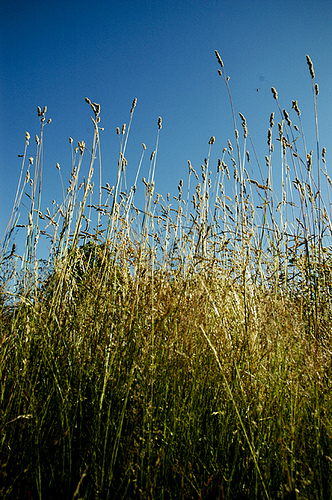How to stay safe from Spring Eye Allergies
The spring season is a favorite time of the year for many people all across the country. The snow is beginning to melt away from our driveways and backyards, the weather slowly begins to grow warmer and the subtle hints of green will soon be budding up all around us. However, while everyone loves to see the flowers start to bloom and the trees grow back there leaves, there is one part of spring that can be a pain for many people across the country―spring allergies.
Image: Source
Unfortunately, this spring season is on track to be no different for those who suffer from dry, itchy eyes in the early months of the year. In fact, many experts are predicting one of the worst allergy seasons in ten years, so allergy sufferers better be on high alert.
According to many doctors, the biggest spring allergy trigger is pollen — tiny grains released into the air by trees, grasses, and weeds for the purpose of fertilizing other plants. When pollen grains get into the nose of someone who’s allergic, they send the immune system into overdrive. Pollen can travel for miles, spreading a path of misery for allergy sufferers along the way. The higher the pollen count, the greater the misery.
In addition to the pollen in the air, many people are also affected by mold, which are fungi (think: related to the mushroom but without stems or roots). Because of the rising temperature of Spring, mold typically increases around the same time of year as pollen. Many times you can check the mold count at the time as the pollen count.
Luckily, there are many things that you can do in order to protect your eyes from the sting of spring without having to coop yourself inside all season long. Here are some seasonal eye care tips for getting through the spring season without all the itching, swelling and scratching that is often associated with allergy season:
Treat Allergies Early
Spring pollen season starts much earlier than many people think. In large swaths of the country, including the eastern seaboard, pollen starts filling the air as soon as the weather warms up just enough for the trees to begin budding. This means that if you take medications to control your seasonal eye allergies, the time to start them is mid- to late-February, not late March. By starting your medications early, you’re less likely to have a snowball effect with your symptoms.
Know How to Treat Allergies
Although it’s easy to walk into a pharmacy and buy over-the-counter (OTC) medications to treat the symptoms brought on by your spring allergies, it’s always a good idea to get checked out by a doctor and reevaluated for which allergies you are affected by most. This is especially recommended if you recently moved to a new location in a different region of the country, as many allergens vary according to weather patterns in a specific area.
Know When To Stay Inside
Allergy symptoms tend to be particularly high on breezy days when the wind picks up pollen and carries it through the air. Rainy days, on the other hand, cause a drop in the pollen counts because the rain washes away the allergens. But, you don’t want to have to stay indoors on a beautiful day just because you have allergies. But if you’re going to be working outside, consider wearing a protective allergy face mask for tasks like mowing the grass, raking leaves, or washing the car. Also, keep an eye on the pollen counts, and try to plan more of your outdoor work for days when pollen counts are expected to be low and it’s not so windy.
Keep Allergies Outside
Allergens such as pollen tend to stick to fabrics, which means you can deposit allergens from your clothes on your furniture, on your pillow, and on the people around you. All of a sudden the safe haven of your home is as allergy-ridden as the outdoors. So wash your bedding, your pajamas, and your clothes as often as possible to rid them of troublesome allergens during the spring season.
Pay Attention to How Things Change
It seems silly to suggest, but write down how your allergies are changing over time throughout a season. You don’t have to record things every day but attempt to record your symptoms on days when things seem particularly intense, and be sure to record the pollen and mold counts for those days, too. Keeping these kind of records can help you and your doctor determine the best seasonal eye care tips for when your allergies hit you head on.
Spring is a great season for getting outside and soaking up the sights and smells of the season. However, make sure you are keeping your eyes safe from the dangerous allergies that come with the spring season.
